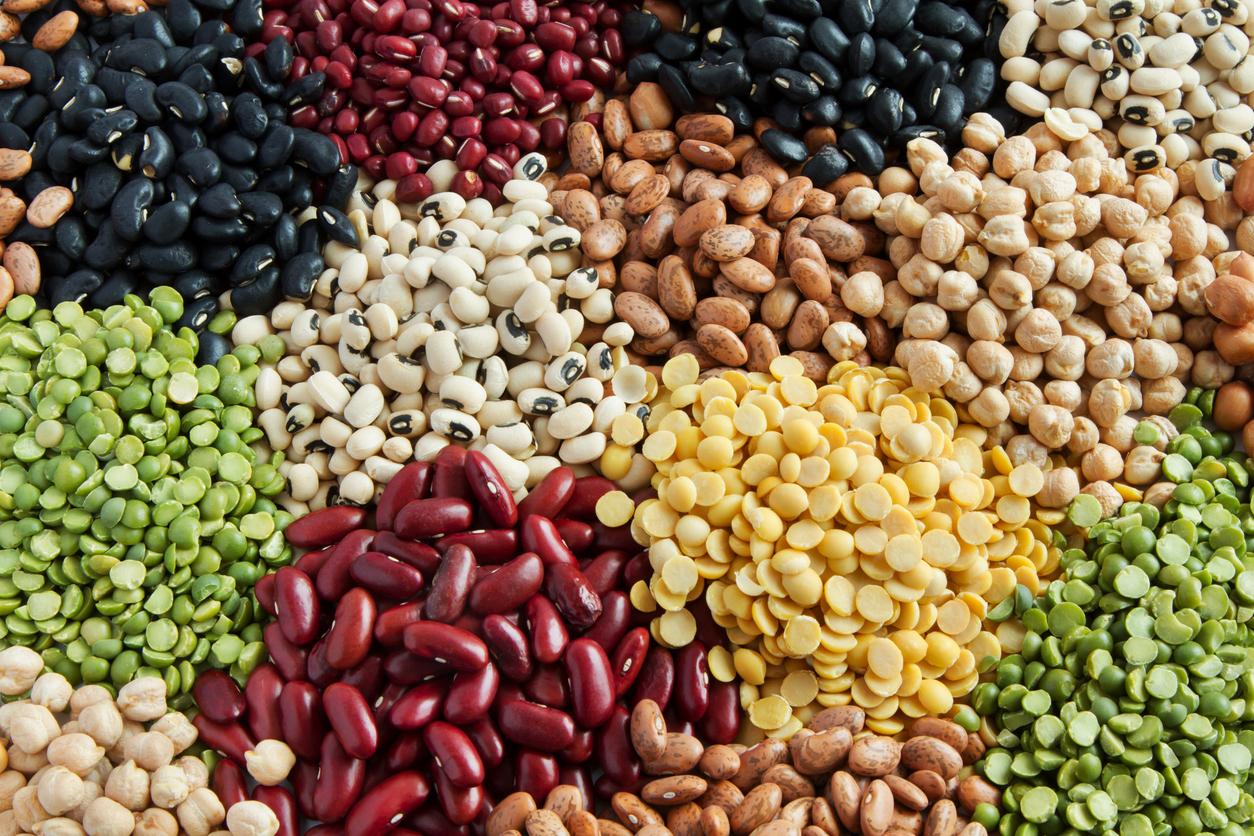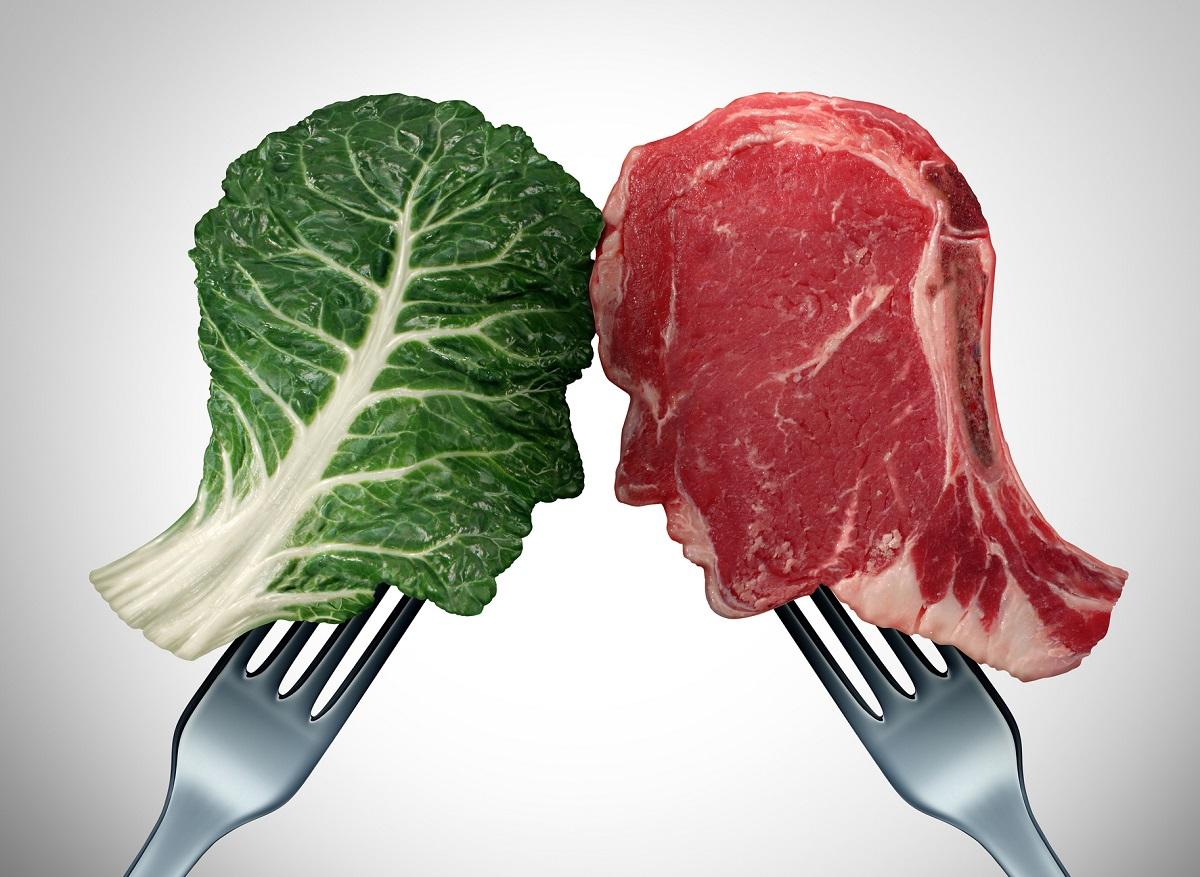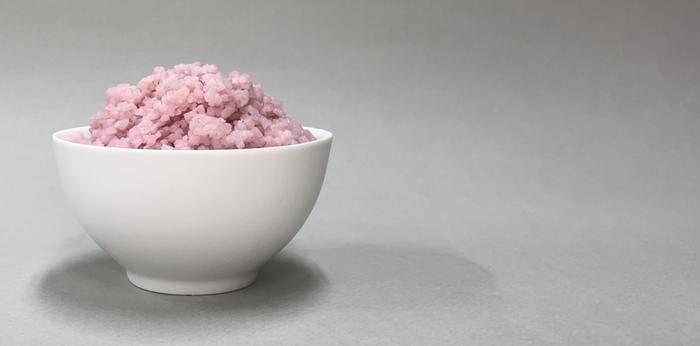
You’re not done with just exchanging meat for a meat substitute
From meatballs and burgers to bacon and sausage spreads: you can hardly think of it that there are vegetarian variants for sale. But how healthy are they really?
Eating less meat is hip, as was recently confirmed by figures from research agency Marktbureau. The number of Dutch people who eat meat on a daily basis has fallen from 55 percent in 2019 to 45 percent in 2021. More and more people are avoiding meat (occasionally), with an eye on the environment and increasingly for health reasons. Plenty of choice for those who want to eat less or no meat anymore. Twenty years ago, consumers had to be content with leathery soy chunks and powders to knead burgers, today there are more than fifty different ready-to-eat meat substitutes on the shelf – spicy or mild and in all kinds of flavors. For on the sandwich, with the fried potatoes, through the spaghetti and so on. These meat substitutes often look a lot like meat, but what’s in them? Most contain legumes such as soy, lupine, (chick) peas and lentils, often with some proteins from wheat and chicken egg as binding agent. In many cases, extra fiber – for example from seaweed – has also been added to create a meat-like structure, and vitamin B12 and iron to increase the nutritional value. In addition to products based on legumes, there are also meat substitutes made from milk (Valess) and fungal protein (Quorn).
a lot of salt
That sounds quite responsible, but do these products actually offer a good variation on meat? “In terms of health, ready-to-eat meat substitutes are somewhere between normal meat and processed meat,” says Pol Grootswagers, postdoctoral researcher at Wageningen University & Research and an expert in the field of nutrition, protein and aging. “They contain less saturated fat than, for example, frikandels, sausage and bacon. But it does contain a lot of salt, a substance that you do not find naturally in meat. In that respect, they do worse than products such as chicken breast and steak.”
Eating more plant-based and less animal-based foods is good for the heart and blood vessels, contributes to a healthy weight and can – because you get more fiber and less heme iron and fewer harmful substances through burned meat – may help prevent colon cancer. But as an older person you should think carefully before switching to a vegetarian or vegan diet, Grootswagers emphasizes.
“Just exchanging meat for a meat substitute is not enough.” The elderly need proportionately more protein than young people to maintain their muscle mass and strength, but often consume less. “That is why it is extra important for people aged 50 and older to get good quality protein,” explains Grootswagers.
However, the quality of vegetable protein is much lower than that of animal protein from meat and dairy. “Vegetable proteins are less digestible and absorbable in the gut and, unlike animal protein, lack some essential amino acids. These are substances that the body cannot produce itself, but which it desperately needs for the construction and maintenance of bones, muscles and other tissues.”
large portions
The Nutrition Center therefore advises vegetarians to eat 20 percent more than the recommended amount of 0.83 grams per kilogram of body weight of protein, and vegans even 30 percent more. For a 65-pound woman, that amounts to 65 and 70 grams of protein per day, respectively – the equivalent of over five soy burgers or nearly fifteen serving spoons of chickpeas. “This is especially a challenge for elderly people with fragile health, because you have to eat large portions to get enough. This while plant-based food is very satisfying due to the large amount of fiber it contains,” says Grootswagers.
Looking for solutions
How can the elderly reap the benefits of plant-based eating without experiencing its drawbacks? Grootswagers and his colleagues in Wageningen are researching it. “We are mapping out the health effects of switching to a plant-based diet at a later age. What happens to muscle building, in the short term and over a period of three months?”
The team is also looking for solutions. “If we combine different vegetable protein sources or add extra amino acids and vitamins to meals, does this have a positive effect on muscle building?” Grootswagers illustrates. The first results of this study are expected in early 2022. In another project, nutritionists and product technologists are working on new concepts for healthy meat substitutes. “In addition to protein quality and salt content, we look at the retention of fibers and other valuable nutrients during the production process and what effect this has on gut health, for example,” says Grootswagers. The researchers are also investigating how they can make the production of meat substitutes more energy-efficient and therefore more sustainable.
Combining Protein Sources
Elderly people who want to eat less or no longer eat meat do not have to wait for these studies to be completed. “You can do a lot yourself to increase the protein quality of what you eat,” emphasizes Grootswagers. “Combine different protein sources in a meal, such as legumes with grains. That way you get all your essential amino acids.”
Examples include chili sin carne, pea soup with rye bread, and whole wheat bread with peanut butter. The Nutrition Center offers suggestions on its website for a varied vegetarian daily menu for the over-70s: a plate of oatmeal for breakfast, a slice of rye bread with cheese, crispbread with hummus and a handful of nuts as snacks, a sandwich with cheese and a glass of buttermilk at lunch. , and lentil soup with yogurt for dinner.
Vitamin B12 Supplement
Also make sure you don’t get too much salt. “Keep a maximum of 1.1 grams per serving as a rule of thumb and compensate for the use of salty meat substitutes by using less or no ready-made sauces, meal packages or spice mixes.”
Those who want to eat less meat do not necessarily need ready-to-eat meat substitutes, emphasizes the nutritionist. “Eggs, nuts, legumes and tofu offer an excellent alternative and are kinder to your wallet,” says Grootswagers. If you eat vegan, take a vitamin B12 supplement just to be sure and make sure you eat plenty of whole grains and green leafy vegetables to get enough iron – preferably in combination with fruit, bell peppers or something else with a lot of vitamin C for better absorption .
Plan well
As an older person, you can easily exchange a piece of meat for a meat substitute once or twice a week. But if you want to avoid meat more often or even go completely vegetarian or vegan, plan what you eat carefully, Grootswagers emphasizes: “Eat plenty of protein at every meal, from different sources, and vary.” The wide range of meat substitutes in the store will help you on your way.
This article previously appeared in Plus Magazine November 2021. Want to subscribe to the magazine? You can do that in an instant!
Sources):
- Plus Magazine















